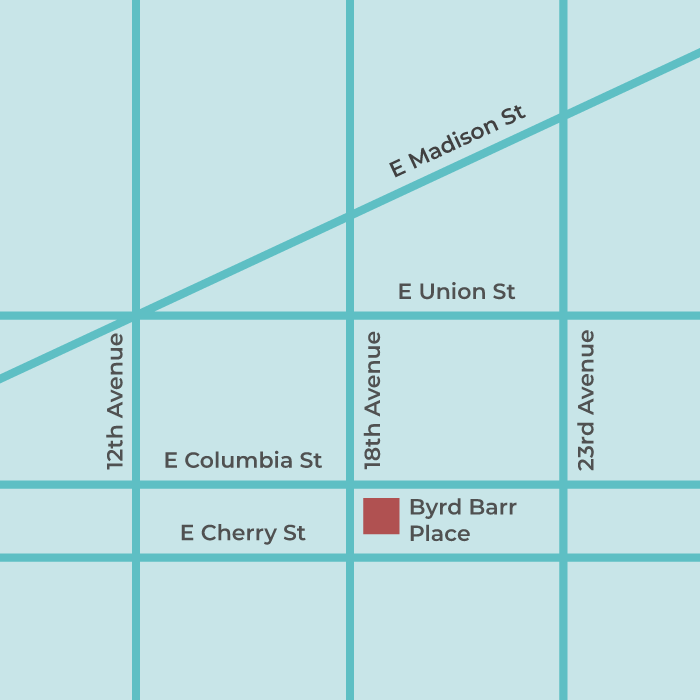By Obioha Okereke, College Money Habits
There are countless lessons I’ve learned on my financial journey, and I have made more mistakes than I can remember. Thankfully I have made some good decisions as well. Here are the three biggest lessons I’ve learned so far in my journey toward financial independence.
Don’t Compare Yourself to Other People
Comparing yourself to other people can lead you to feeling like you aren’t doing enough or that you’re behind in life. Instead, it is extremely important that you focus on your own goals and your own journey.
Growing up, I had a habit of comparing myself to peers and people I saw on social media.
I attended a high school where there were plenty of students who came from affluent families, and it was not abnormal to see an Audi or BMW in the parking lot. In college, the presence of wealth was even more apparent. It wasn’t uncommon to spot a Lamborghini or Maserati as you walked through campus or to see students dressed from head to toe in designer clothing.
With the rise of social media, I was constantly basing my success on the photos, videos, and posts I saw as I scrolled through Facebook, Instagram, and YouTube.
I would constantly get in my head and think “I wish I had a nicer car” or “I wish I had more clothing.” I got into a habit of always wanting more and never being satisfied with what I had and where I was in life. As I got older, I also started comparing my career to others’ careers.
Eventually, I found myself constantly comparing myself to others. I then realized that basing my goals on others’ achievements was not realistic. And more importantly, it wasn’t healthy.
There is always going to be someone with a bigger house, a nicer car, newer clothing, or who takes more vacations. The best thing you can do is focus on YOUR goals, and YOUR achievements. I learned to define success on my own terms by setting personal goals and tracking my success based on improvements.
Rather than comparing myself to other people, I now focus on looking at where I am now compared to where I was in the past. Just because someone became a millionaire at 25, does not mean I need to be as well.
Tip: If you find that you are regularly comparing yourself to other people, remind yourself that everyone has their own journey. Your life and your experiences are not the same as someone else’s, so it isn’t fair to compare the two. Focus on what you’ve accomplished, what makes you special and, most importantly, set your own goals.
Set Financial Goals
Goal setting is extremely important when it comes to improving your finances. Setting realistic goals and being specific on what you want to achieve will motivate you to be intentional about your financial decisions. As a result, you will likely see significant improvements in your financial well-being.
For as long as I can remember, I have set financial goals.
I can still remember writing down on a piece of paper several years ago that I wanted to save $10,000. It is interesting to look back on knowing how far I’ve come. The real advantage of setting realistic financial goals is that they help keep you grounded and keep you motivated. When you set a goal, be sure to ask yourself these questions:
- What do you want to achieve?
- When do you want to achieve it?
- What challenges might you face?
- What sacrifices will you need to make?
Learn to Delay Gratification
Learning to delay gratification has been the single greatest lesson I have ever learned. So, what does it mean? Delaying gratification is the process of letting go of an immediate satisfaction in favor of seeking a larger reward in the future.
This could be resisting the urge to order takeout, and instead cooking a meal at home to save money. Or, regularly avoiding the urge to buy new clothing so that you can invest and use your extra funds to pay off debts.
How these three lessons helped me save $100,000
When I was 22, I was living at home. In order to move out and never rely on my parents again, I set a goal to save $100,000. At that time, this number — to me — represented financial independence. So to achieve my goal, I mapped out a plan based on my discretionary income to see when I could hit my goal. I found that it would take me two years to achieve my goal, but of course with a few sacrifices.
I would need to continue living at home with my parents and cut back on my spending. So, for two years, I learned how to say no.
No, to unplanned vacations.
No, to going out every weekend.
I budgeted for everything in life and regularly reviewed my progress towards saving $100,000..
I’m a big fan of trying new restaurants and had built a habit of overspending on food. To cut my spending, I drastically cut back on dining out and set a budget that allowed me to visit restaurants no more than roughly twice a week. I started learning how to cook. I also made a rule that from Monday to Thursday, I could not spend any money on fast food or dining out of any kind. Almost three years later, this is something I still do today.
Another way I cut back on spending was making the decision to purchase clothing only when I needed it, and not just every time I wanted something new.
All these sacrifices: living with parents, spending less on food, and cutting back on clothing purchases allowed me to focus on what was important and increase my savings.
With the money I saved, I focused on building an emergency fund, investing, paying off loans, and launching my first business. In two and a half years, I have gone from $13,000 in savings, to now having a net worth of about $180,000.
I remember reading once that “If you can’t manage $1,000, you can’t manage $10,000. You don’t suddenly learn how to handle money by amassing more of it.” From personal experience, this is absolutely true.
The lessons I learned around self-control and living within my means are priceless because had I not learned to manage my money when I had $1,000 or $20,000, or had I never learned to delay gratification, I’d be in a completely different position than I am today. Delayed gratification taught me how to plan for the future and showed me the importance of making healthy money decisions.
It goes without saying that $160,000 can purchase a lot more than $13,000. If I had never learned the difference between wants and needs, how to follow a budget, and that I didn’t need to buy all the things I wanted, simply because I could, it would be extremely difficult to manage the money I have now.
If you have any questions regarding these personal finance resources and/or general questions about managing your personal finances, contact Obi Okereke from College Money Habits at learn@collegemoneyhabits.com.
Related Articles:
Understanding Discretionary Income
Budgeting starts with knowing your discretionary income. Learn what goes into calculating it and apps to help you track spending against your budget.
How to Create a Personal Budget
Take charge of your financial health by following these six steps to create your own budget based on your discretionary income and spending.
The 50-30-20 Budget
This popular budgeting strategy helps you manage your money with 50% for needs, 30% for wants, and 20% for saving, investing and/or paying off debt.
5 Budgeting Mistakes to Avoid
Knowing these five common budget mistakes can help you build your savings and create better money habits.


